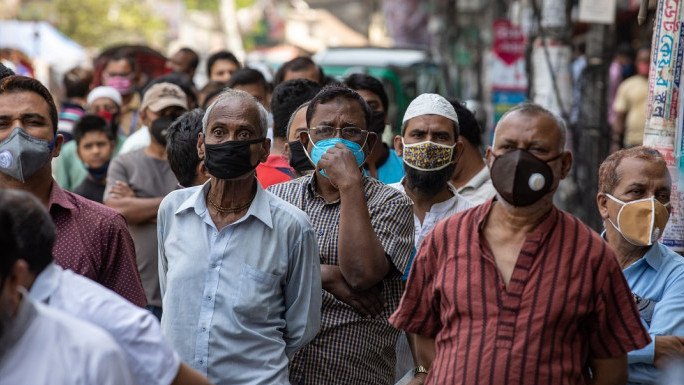Elderly care gets biggest share in lifecycle-based safety net

The government has allocated Tk 46,173 crore—nearly 40% of the social protection budget for FY 2025–26—for seven programmes focusing on elderly care, according to the Finance Ministry’s Social Security Budget Report.
This is the largest share among 95 lifecycle-based programmes under the Tk 1,16,731 crore social protection budget, structured to meet the evolving needs of citizens across different stages of life.
The Finance Ministry sources said this high allocation reflects the country’s demographic trend toward an aging society and aims to honour the contributions of senior citizens including freedom fighters.
Key initiatives include the Old Age Allowance and pension reforms under the National Pension Authority.
Under the National Social Security Strategy (NSSS), the lifecycle approach segments beneficiaries by age and vulnerability—from pregnant women and schoolchildren to the elderly and disaster-affected families.
Two other categories—System Strengthening and Unclassified—support institutional and cross-group interventions.
Meanwhile, 19 Household (poverty) programmes will receive Tk 29,319 crore (25.12%), while 14 Household–Shock programmes will be allocated Tk 12,458 crore to support those affected by climate-related and other disasters.
Nine school-age children programmes will receive Tk 9,790 crore (8.37%) through initiatives like stipends and free textbook distribution, reinforcing the government’s education-first strategy to break intergenerational poverty.
The budget allocates Tk 8,400 crore across 23 Working Age programmes, about 3.5% of the total, reflecting a strategic shift away from traditional workfare schemes towards skill-building and employment facilitation, including technology-driven training like nationwide freelancing initiatives.
In other categories 10 programmes for persons with disabilities will receive Tk 4,077 crore, Eight unclassified programmes will be allocated Tk 3,916 crore, Four pregnancy and early childhood programmes will get Tk 2,467 crore and One system-strengthening initiative will be funded with Tk 131 crore.
These allocations underscore a responsive governance model that prioritizes targeted, evidence-based support across age-specific and risk-specific categories, in line with the NSSS.
Similarly, the significant allocation to household poverty reduction underscores the government’s focus on food security and basic needs through programmes such as the Vulnerable Group Feeding (VGF) and climate resilience measures for at-risk communities.
For children, education stipend programmes like the Primary Education Stipend Programme and Secondary Education Stipend Programme aim to keep students in school, contributing to long-term human capital development.
Support for working-age individuals includes initiatives like the Employment Generation Programme for the Poorest (EGPP) and the Vulnerable Women Benefit (VWB) programme, focusing on productive engagement and income support.
The lifecycle-based system also addresses intersectional vulnerabilities through adaptive categories like Food Friendly Programme (FFP), Test Relief (TR), and Open Market Sales (OMS), which do not neatly fit into traditional lifecycle stages but serve vital protective functions.
This comprehensive strategy seeks to ensure continuity of support throughout the life course while retaining flexibility to respond to covariate shocks such as natural disasters or economic disruptions.
By integrating vertical coordination across ministries with localized implementation, the system maintains a balance between national standards and context-specific solutions.
The lifecycle approach of the NSSS uses age as an eligibility anchor, supplemented by poverty data and administered via a unified social registry, allowing real-time adjustments as individuals move through different life stages.
It integrates both contributory (insurance) and non-contributory (assistance) schemes, enabling better allocation efficiency and fiscal predictability.
According to the report, these budgetary decisions reflect a commitment to social solidarity—honouring the contributions of the elderly while investing in the productivity of future generations.
By proactively addressing the long-term needs of an aging population while maintaining support for youth and working-age citizens, the government is striving to ensure that Bangladesh’s social protection system remains inclusive, efficient, and sustainable as the country moves toward upper middle-income status.



